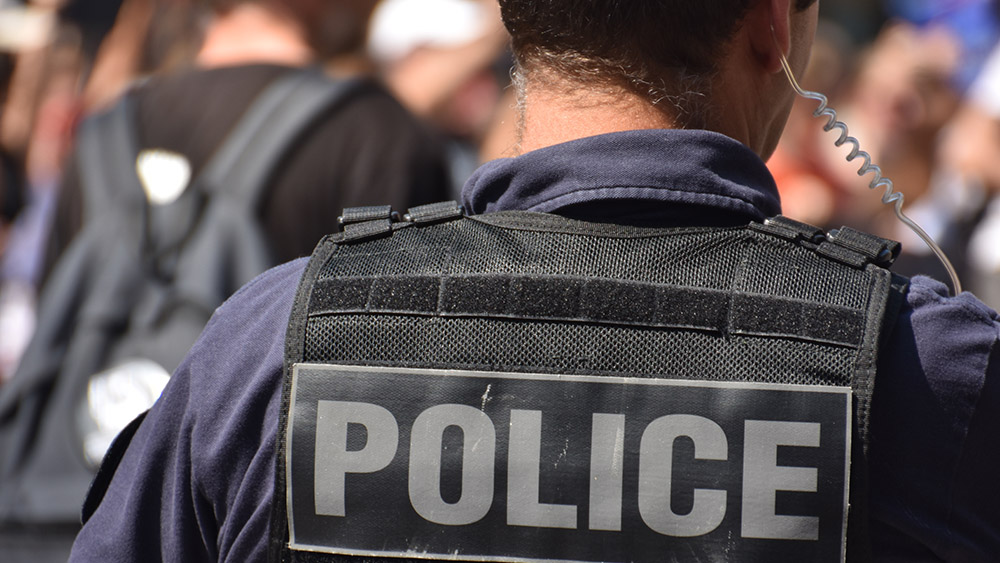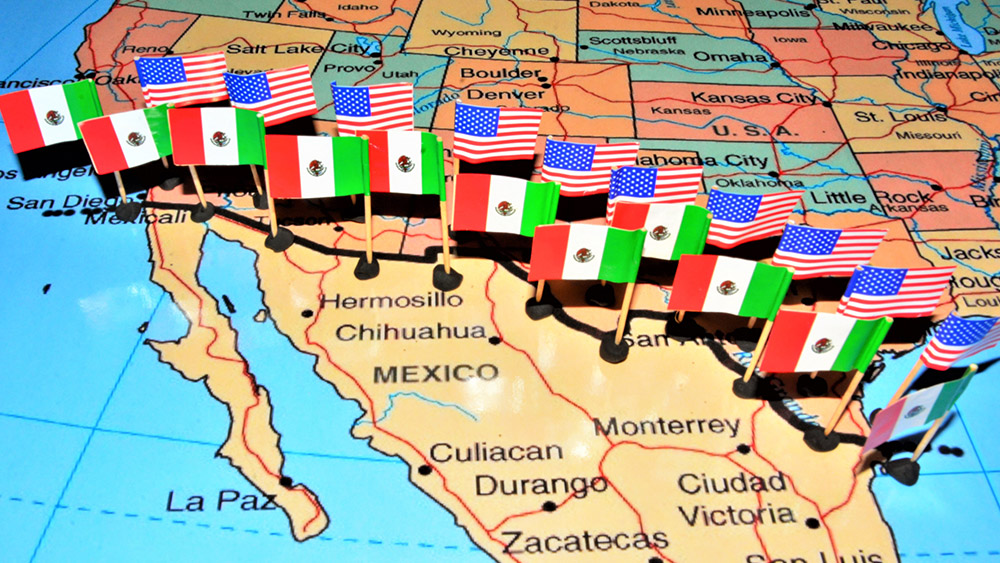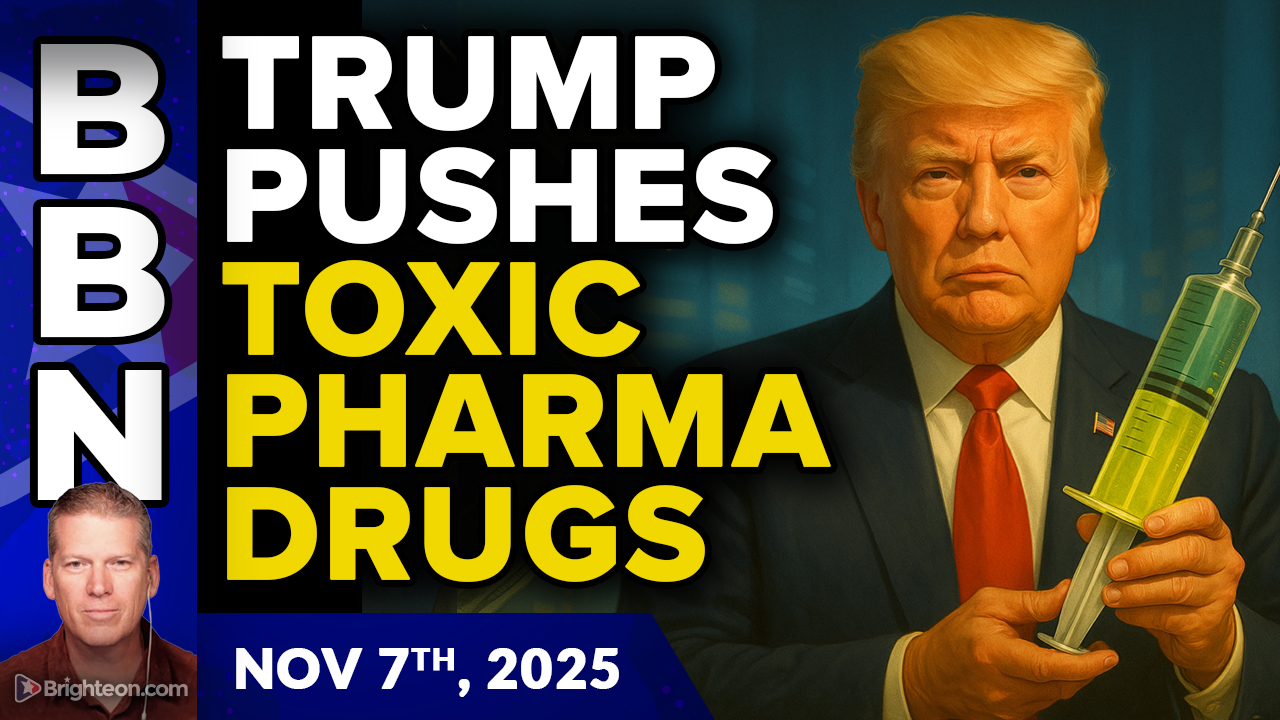 Parler
Parler Gab
Gab
- President Trump's federal crime initiative in Memphis resulted in over 1,700 arrests and a 46 percent drop in serious crime in one month.
- The operation, involving the National Guard and over a dozen federal agencies, led to the seizure of 293 firearms and the location of 78 missing children.
- The administration is expanding its successful Washington, D.C., task force with a new national hiring portal for law enforcement personnel.
- The D.C. task force has made over 5,000 arrests and removed over 400 illegal guns from the city's streets since its inception.
- These federal interventions represent a strategic shift toward direct federal action to combat urban crime in certain jurisdictions.
Memphis task force delivers swift results
The "Memphis Safe Task Force," announced by President Trump from the Oval Office in September 2025, mobilized more than a dozen federal agencies in a coordinated assault on the city’s criminal elements. According to data provided by the Department of Justice, the one-month operation resulted in arrests for homicides, drug offenses and gun charges, including 126 individuals identified as known gang members. In addition to the 1,700 arrests, law enforcement officials seized 293 firearms, a significant dent in the illegal weapons circulating in a city that recently held the highest violent crime rate in the nation. Attorney General Pam Bondi, who is leading the Justice Department’s efforts, framed the success as a matter of political will. "Tolerating crime is a choice. Under President Trump, we choose law and order," Bondi stated, praising the cooperation of Memphis leadership. The statistical impact has been immediate; a review of the city’s crime dashboard showed a 46 percent decline in serious crime since the task force began its work on September 29.A contrast to previous city responses
The Memphis operation is part of a broader pattern of federal intervention in cities the president has described as plagued by crime. However, the reception in Memphis has stood in stark contrast to the mass protests and legal challenges that met similar federal surges in Chicago, Portland and parts of California. As a solidly red state, Tennessee’s Republican Governor Bill Lee approved the deployment of National Guard troops, despite lawsuits from some local leaders. Memphis Mayor Paul Young, a Democrat, has maintained a cooperative, if less enthusiastic, stance toward the federal presence. The operation’s local support was captured in a viral video of a resident thanking President Trump, noting that for the first time in years, her children could play in their backyard without fear, a sentiment the administration highlights as evidence of its policy’s effectiveness.Expanding the model to the nation's capital
Building on the perceived success in Memphis and earlier gains in Washington, D.C., the administration is now expanding its capital city task force with a new national hiring push. The administration launched Safedc.gov, a hiring portal calling on law enforcement officers, military veterans and civilians from across the country to apply for positions supporting the D.C. task force. Hired applicants will receive federal benefits and serve an initial one-year deployment. The D.C. task force, which placed the city's police department under federal executive branch control earlier this year, has already reported significant results. White House data indicates the multi-agency effort has led to more than 5,000 arrests, the removal of over 400 illegal guns from the streets and the recovery of 14 missing children. The initiative, which includes hundreds of National Guard troops patrolling key areas like Union Station, was launched in response to a violent crime wave that included rampant carjackings and shootings.A new chapter in federal law enforcement
The administration’s aggressive, federally led approach marks a definitive shift in the relationship between the federal government and municipal public safety. By deploying a combination of National Guard troops, agents from the FBI, DEA, ATF and U.S. Marshals, and now recruiting a national force for D.C., the strategy bypasses traditional local control in favor of a centralized, military-supported model. Proponents argue that the precipitous drop in crime statistics in both Memphis and Washington, D.C., validates the method, proving that a show of force and unwavering enforcement can quickly restore safety.A national strategy takes hold
The tangible outcomes in Memphis and Washington, D.C.—thousands of arrests, hundreds of seized guns and double-digit crime reduction—provide a powerful narrative for the administration’s law-and-order agenda. As the hiring portal for the D.C. task force begins accepting applications from across the nation, the policy evolves from a targeted intervention into a scalable national program. This expansion signals a lasting transformation in how the federal government may choose to confront urban crime, setting a precedent for direct action that will likely define the administration’s public safety legacy for years to come. Sources for this article include: TheNationalPulse.com FoxNews.com AOL.comU.S. surveillance flights over Mexico signal escalating cartel crackdown under Trump
By Belle Carter // Share
Trump announces affordable Ozempic plan amid safety concerns and Novo Nordisk executive collapse
By Finn Heartley // Share
Four more suspects arrested in alleged ISIS-inspired Halloween terror plot across three states
By Patrick Lewis // Share
Russia warns of Western-backed nuclear sabotage plot at Zaporizhzhia plant
By Belle Carter // Share
Medical schools boost nutrition training after pressure from RFK Jr.
By Cassie B. // Share
Governments continue to obscure COVID-19 vaccine data amid rising concerns over excess deaths
By patricklewis // Share
Tech giant Microsoft backs EXTINCTION with its support of carbon capture programs
By ramontomeydw // Share
Germany to resume arms exports to Israel despite repeated ceasefire violations
By isabelle // Share










